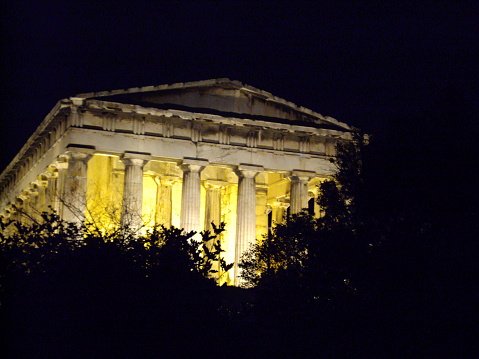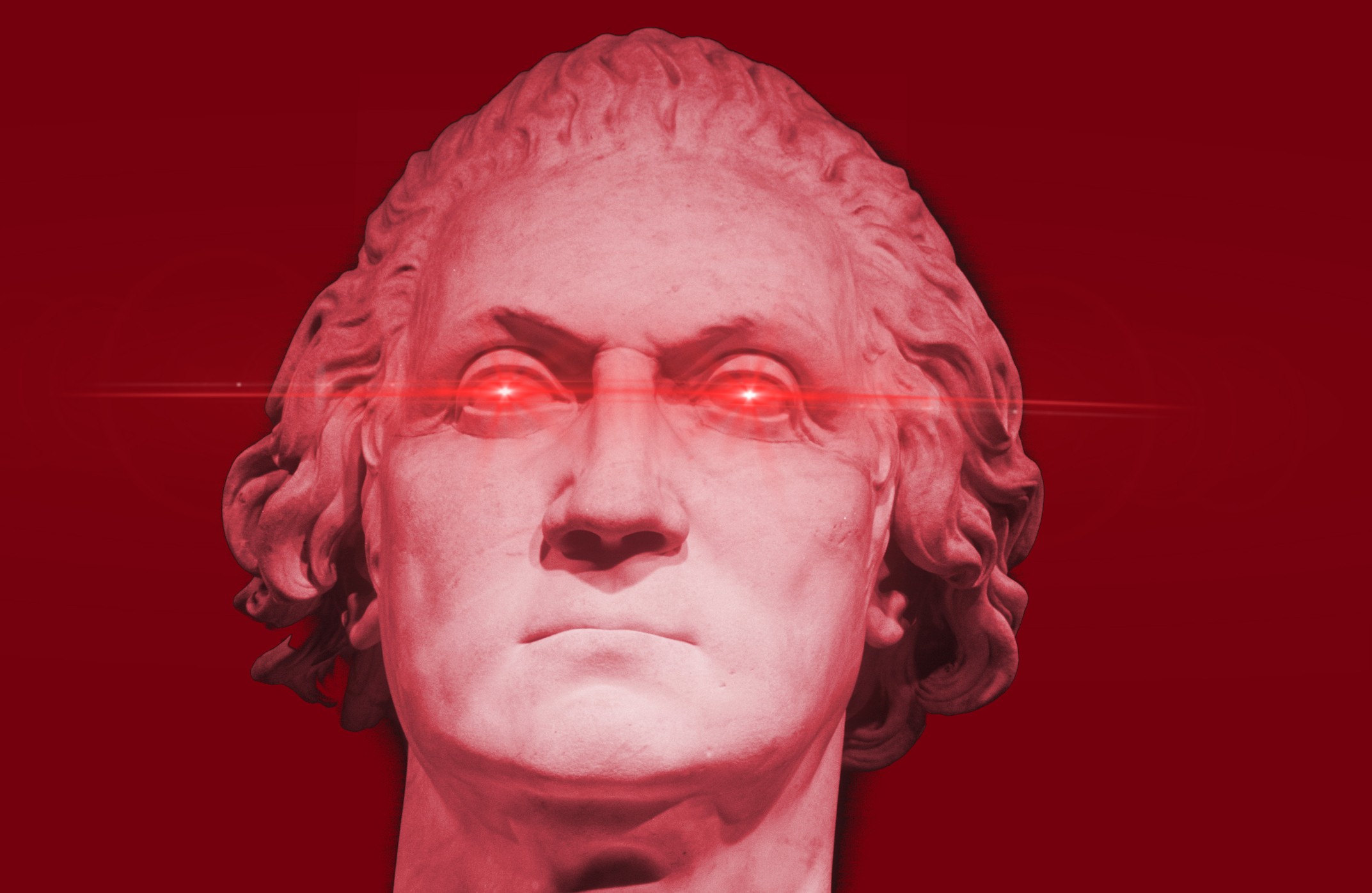America’s founding principles are not merely tried—they are true.
Tribal Politics

The pitfalls of conservatism without practical reason or natural law.
Yoram Hazony’s Conservatism: A Rediscovery admirably attempts to liberate conservatism from undue fealty to liberal dogmatism. I share his ambition to articulate the “conservative foundations,” as I have called them elsewhere, of our civic order. But I fear Hazony has redefined conservatism more than he has rediscovered it. With the late Roger Scruton, a truly trustworthy authority on conservative political philosophy, I see conservatism as a corrective to the one-sided individualism (and the collectivism that later flowed from it) that emanates from liberal theory. Conservatism thus has a dialectical relationship to the liberalism it simultaneously rejects, corrects, and affirms. With Hazony, it is all rejection with little or no correction and affirmation.
As Roger Scruton argues in his 2018 book Conservatism: An Invitation to the Great Tradition, conservatives (as opposed to those yearning for the restoration of the Old Regime) are partisans of “the constitution of liberty.” But they understood freedom in a much more capacious way than liberals do. Conservatives rightly insist that the free community is a community where constraints (and unchosen obligations) “are accepted as a part of citizenship” and of a morally serious human life. Conservatives are more likely than liberals to recognize that “freedom is a way of belonging” that comes with demanding responsibilities as well as indispensable rights. Thus, as Scruton writes, “conservative thinking has never been devoted to freedom alone” (emphasis added).
By safeguarding the West’s cultural and spiritual capital, and by affirming the obligations inherent in social and political life as such, conservatism can help give heft and balance to liberal societies tempted by spiritual drift. The best conservative thought can freely affirm what Raymond Aron called “the wisdom of Montesquieu” (and the Founding Fathers for that matter), a wisdom that rightly saw that “power must check power” and that even “virtue has need of [political] limits.” Religious liberty is therefore a precious good. Conservatives, however, appreciate that secularist animosity to religion and moral virtue ultimately leads to the abyss. This can take the form of totalitarian despotism or a late-modern moral subjectivism that paradoxically can give rise to ideological fanaticism (call to mind those unthinking woke mobs) or a moral drift that leads to both passivity and spiritual degradation. Conservatives, much better than liberals, appreciate that freedom is a human good only when it does justice to the moral contents of life and acknowledges the communal and political setting in which ordered liberty can be sustained.
Conservatives can do this precisely because they have remained open to the golden common sense and sublime moderation of Aristotle’s Politics, to the imperatives of moral conscience and natural law passed on by the Christian centuries, and to the choice-worthiness of culture rightly understood—“the best that has been thought and said,” as the great 19th-century English man of letters Matthew Arnold put it. In contrast, today’s faux liberals specialize in cultural repudiation, attacking all the old conventions and any idea of an enduring natural moral law. In place of the old civilities valued by classical liberals (who were more conservative than they knew) they use crass epithets to denounce reasonable and public-spirited men and women (who happen to disagree with their frenzied cultural agenda) as racists, classists, homophobes, transphobes, and unjustly “privileged” to boot. Is this a real improvement on the Bolsheviks denouncing kulaks, modestly prosperous peasants, as “enemies of the people,” or the Jacobins seeing enemies under every bush? There is a totalitarian logic inherent in the rhetoric of repudiation that culminates in the reign of violence and lies. The firmest resistance to this brazen and coercive nihilism is the path of both authentic conservatism and authentic liberalism in the contemporary world.
Throwing Out the Baby
Yoram Hazony would no doubt agree with much of what I’ve had to say. But by ignoring both natural law (which has nothing to do with utopian and doctrinaire political rationalism) and the political or practical reason that alone can discern what is true and enduring in received tradition, he leaves us inordinately relying on biblical traditionalism. In addition, his rendering of the Anglo-American constitutional tradition leaves behind altogether the idioms of “natural rights” and “natural law” so central to the tradition. To be sure, I agree with Hazony about the limits inherent in political theorizing that takes its bearings uncritically from the social contract and a “state of nature” where human beings are said to be perfectly free and perfectly equal. Leo Strauss rightly discerned that thinkers such as Thomas Hobbes appealed to the “state of nature” as a self-conscious substitute for both the Aristotelian view that human beings are by nature “political animals” and the biblical view that right and wrong are inherent in the very order of things.
Alexander Hamilton, like most of the other American Founders, freely utilized the idiom of the state of nature and the social contract. It is an essential part of our political tradition. But Hamilton refused to draw Hobbes’s morally subversive conclusions. As evident from “The Farmer Refuted,” published in February 1775, Hamilton rejected any version of “state of nature” theorizing that denies the sempiternal distinction between right and wrong, and the need for rights-bearing men to defer to “superintending principles” of justice bequeathed and safeguarded by the Creator of the universe. There is an “eternal and immutable law,” he argued, that is “obligatory upon all mankind.” Even as he defends a regime of political consent and the rights that belong to man as man, Hamilton links these to natural justice and a broadly theistic framework. Defending a conception of “historical empiricism” bereft of a framework to judiciously bring together rights that belong to human beings “by nature” and duties and obligations that are equally natural, Hazony seemingly rejects the idiom of natural right altogether. Here he departs in a most significant way from our political tradition. And in doing so, he exaggerates the reason inherent in what he calls axiomatic political rationalism.
Hazony misses something very crucial. The modern philosophical rationalists, whom Hazony rightly criticizes, Hobbes first among them, hardly had confidence that reason could say anything meaningful about the Good Life for human beings. As Pierre Manent has written, they took their bearing from the “flight from evil,” rather than any affirmation of those goods, rooted in our nature and the nature of things, that allow for human flourishing. This modern rationalism inevitably culminates in what Max Weber called “the war of the gods,” where arbitrary decision or commitment substitutes for practical reason leavened by conscience and moderation. As Weber says, in the new self-understanding, at once positivist and existentialist, we choose our god—who may turn out to be a demon.
In light of this self-subversion of modern reason, the true conservative today is obliged to defend practical reason, duly attentive to tradition and experience, but rooted in the deepest wellsprings of human nature. He or she must reject doctrinaire “natural public law,” as Leo Strauss called it, which mistakenly abolished the “latitude” appropriate to prudent statesmanship. But he or she must equally eschew a moral and political relativism that denies the political good as such. Hazony has many wise things to say about the limits of democracy promotion as a political religion (where democracy is understood in light of the categories of decayed liberalism). But self-subsisting “historical empiricism” gives us no ground for discerning the wisdom inherent in sound tradition. Phronēsis, as Aristotle called it, gives way to an odd and unstable mix of skepticism about the ability of reason to discern the good, and a fideistic reliance on Divine Law. Without practical reason and natural law, the humanizing dialectic of principle and prudence gives way to a “conservatism” that is more invented than real.
Almost all of Yoram Hazony’s practical judgments and moral intuitions are decent and sane. But by leaving us bereft of natural law and practical reason, and by associating conservatism with a mix of Humean skepticism and religious fideism, he has undermined the capacity of conservatives to do their corrective and elevating work. It is an illusion to think conservative democracy can or should free itself from liberalism tout court. Its work must be more thoughtful, measured, and sober than that. By exaggerating the place that “universal reason” plays in liberal democratic theory and practice in the first place, Hazony ignores what Roger Scruton highlighted: the conservative foundations of our civic and civilizational inheritance should aim not to bury liberalism but to prevent it from burying itself. Today, that remains a preeminent task of conservative prudence.
A final remark. Yoram Hazony’s idiosyncratic conservatism is what it is precisely because of his implicit refusal to draw on Athens as well as Jerusalem, the twin cities of Western wisdom. Hazony is a thoughtful and vigorous defender of the nation as the indispensable frame of self-governing political communities. But in this book and elsewhere, his defense of the nation hardly distinguishes the nation from “tribes,” which Hazony interprets in an exclusively biblical sense. A serious engagement with classical political philosophy, with the golden wisdom of Aristotle for example, would have suggested that the tribe, rooted in inward-looking kinship, is at best a pre-political form and is hardly coextensive with the nation.
Hazony also identifies Catholicism with imperium, ignoring the argument of Pierre Manent that Catholic Christianity eventually gave rise to the national form in France and elsewhere as an alternative to the intense “puniness” of the city and the sheer “immensity” of empire. In the medium-sized nation, charity and prudence could better do their work. Territorial democracy, humane national loyalty, as Roger Scruton and Pierre Manent have articulated it in their differing but largely complementary ways, allows a form of civic attachment as opposed to religious affiliation or the attachments of tribal kin. But for a long time, Western nations admirably combined civic life and loyalties with a public recognition of their “Christian mark,” as Pierre Manent calls it. By bringing Athens and Rome into the picture, by engaging in dialogue with the likes of Scruton and Manent, Hazony might have enriched both his articulation of conservatism and his salutary defense of the nation. But I welcome Hazony’s latest work both for its considerable insights and for precipitating precisely that kind of dialogue.
The American Mind presents a range of perspectives. Views are writers’ own and do not necessarily represent those of The Claremont Institute.
The American Mind is a publication of the Claremont Institute, a non-profit 501(c)(3) organization, dedicated to restoring the principles of the American Founding to their rightful, preeminent authority in our national life. Interested in supporting our work? Gifts to the Claremont Institute are tax-deductible.
Reason and revelation are united in our founding philosophy.
Enlightenment rationalism cannot even deliver the goods it promises.
The Anglo-American alternative to fascism, Marxism, and enlightenment rationalism.




